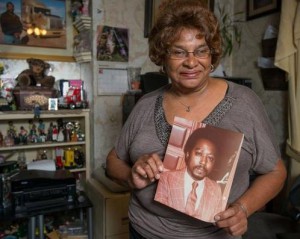Bank Attempts to Foreclose a Widow Even Though Her Home Was Insured
After the 2008 Foreclosure Crisis, many states passed laws to prevent foreclosure abuse. Although these laws are now on the books, the banks themselves were never adequately punished for their fraud. As a result, some major banks continue practices that are clearly unethical and most likely illegal.
 Laura Coleman Biggs was the target of such a foreclosure practice. Ms. Bigg’s late husband, George Mitchell, had purchased an insurance policy to pay for the principle of the mortgage in the event of his death. The lender, a Bank of America subsidy, had insisted Mr. Mitchell purchase life insurance worth $100,000 to cover the mortgage. This information was kept a secret from Ms. Biggs until April 2015.
Laura Coleman Biggs was the target of such a foreclosure practice. Ms. Bigg’s late husband, George Mitchell, had purchased an insurance policy to pay for the principle of the mortgage in the event of his death. The lender, a Bank of America subsidy, had insisted Mr. Mitchell purchase life insurance worth $100,000 to cover the mortgage. This information was kept a secret from Ms. Biggs until April 2015.
Mr. Mitchell passed away in 2003, with $120,000 still on the mortgage. The life insurance policy should have left Ms. Biggs with only $20,000 to pay. However, Bank of America, its subsidy, and the insurance company all failed to notify Ms. Biggs that she had a life insurance payout that could pay off the bulk of her mortgage. Instead, Bank of America continued charging the full $120,000 mortgage. On top of that, the insurance company continued charging insurance premiums even though Mr. Mitchells had already passed away.
By the end of 2011, Ms. Biggs was threatened with foreclosure. Ms. Biggs filed for bankruptcy and the case dragged out for two years. The $120,000 plus “fees” seemed hopeless. Ms. Biggs consulted an attorney, who discovered that the “fees” were not legal fees at all. The “fees” were actually insurance premiums that should have been paid off when Mr. Mitchells passed away in 2003.
After learning about the life insurance, Ms. Biggs filed a lawsuit earlier this year against Bank of America and all parties involved for maliciously conspiring to ignore the insurance policy that allows Ms. Biggs to stay in her home.
Expanding Existing Protection
Many of the anti-foreclosure abuse laws were written to prevent a procedure known as “dual tracking.” Dual tracking is the lending practice of offering mortgage modification while foreclosing the homeowner at the same time. Banks that use dual tracking are negotiating in bad faith and many states now have laws prohibiting such foul play.
Currently, dual tracking laws only prohibit simultaneous mortgage modifications and foreclosure. However, lawmakers and judges should expand anti-dual tracking laws to include situations like the one Ms. Biggs found herself in. In Ms. Biggs case, there was a pool of insurance money that Bank of America and its subsidiary should have used to satisfy the loan. Bank of America knew the insurance existed because the lender suggested Mr. Mitchell purchase insurance in the first place!
Dual tracking laws should be amended so that banks cannot foreclose homeowners while there are alternative remedies available to the lenders. Dual tracking laws were created so that banks have to exhaust all options before using foreclosure. Mortgage modification is one such option, but insurance payments are another option that banks can utilize before foreclosing a homeowner. Widows should not be thrown out of their homes while banks and insurance companies pocket the profits.


Comments